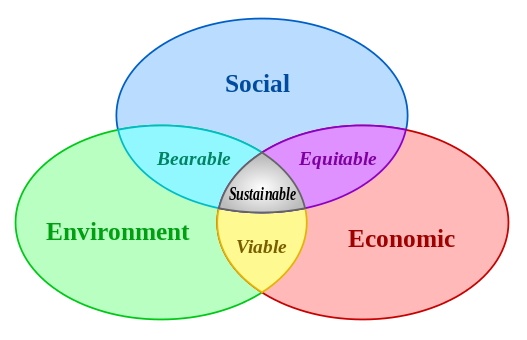Everything You Need to Know About Your Next EHS Sustainability Report
With investors increasingly interested in how companies will address the causes and effects of climate change, EHS sustainability as a whole has earned a permanent spot in corporate reports and boardrooms. We have put together a list of everything you need to know about for your next EHS sustainability report.
Here’s why, and how you can get ready to implement tomorrow’s best practices.
Paris Agreement Doubles Down on Climate Commitment
In a bid to limit global warming to less than 2°C, a full 195 countries adopted and signed the first-ever binding climate agreement at the Paris Climate Conference (COP21) in 2015. Unlike previous agreements like the Kyoto Protocol, the scale of COP21 signaled a strong global commitment to tackling climate change, and markets have taken notice.
While President Trump had originally promised to withdraw from the agreement during his campaign, he has postponed a decision on the matter and suggested that he may reconsider his position. Many businesses are forging ahead with plans to reduce emissions regardless of the U.S. outcome. However, believing that a shift to a low-carbon economy is inevitable. This is especially true of organizations with international reach. They will need to operate in countries that do implement the agreement. Investors and other stakeholders also see the writing on the wall, and are seeking more input on these issues.
The Future of EHS Sustainability Reporting
In a May 2015 report entitled “Sustainability and Reporting Trends in 2025: Preparing for the Future,” the Global Reporting Initiative outlined eight key themes that will drive future sustainability reporting. Unsurprisingly, technology is at the heart of many of them.
Companies will be held accountable, more than ever before
In the age of big data, we have an unprecedented amount of information on climate change and other environmental challenges. Digital media has also spread that information far and wide. As media outlets continue to report on virulent storms, heatwaves, and other possible effects of climate change, the public will be looking to the companies that power society to help address such problems.
Business decision-makers will take sustainability issues into account more profoundly
This is done in order to manage their risks and reputations.
Technology and data will create transparency
This means that stakeholders can keep tabs on companies to make sure their actions live up to their promises.
Technology will enable companies to report on sustainability in a more integrated way
Developments in sustainability software will allow for seamless reporting for supply chains and other partnerships.
Ethical values, reputation, and risk management will guide decision-makers
Management will seek to stay ahead of the curve and take the lead on social responsibility issues that are not yet regulated. Enhanced transparency, the rise of “green” certifications, and the importance of social responsibility to millennials entering the workforce may contribute to this trend.
New sustainability indicators will emerge
Many companies currently report on discrete measures such as greenhouse gas emissions, water use, and waste streams, ecosystems function as a whole. The report predicts that new indicators will allow corporations to assess the combined impact of sustainability efforts, and also to place values on externalities like clean air and human health.
Reports will result both from regulated and voluntary processes
In line with trend number five, companies will take voluntary measures to protect their assets and reputations.
Sustainability data will be digital
As a result, reports will be released more frequently.
Next Steps for EHS sustainability report
If you’re looking for inspiration for your own EHS sustainability report, try consulting the Global Reporting Initiative’s Sustainability Disclosure Database, where you’ll find more than 40,000 such documents from over 10,000 organizations.
For more information on the environmental challenges and opportunities companies in your sector have identified, visit the Sustainability Disclosure Search Tool, a utility that scans corporate SEC filings and returns passages pertaining to climate change, carbon asset risk, water issues, and fracking.
See how companies are embracing ISO 14001 to reduce waste, gain a competitive edge, and woo customers and investors. Check out our post on how ISO 14001 affects your sustainability efforts.
